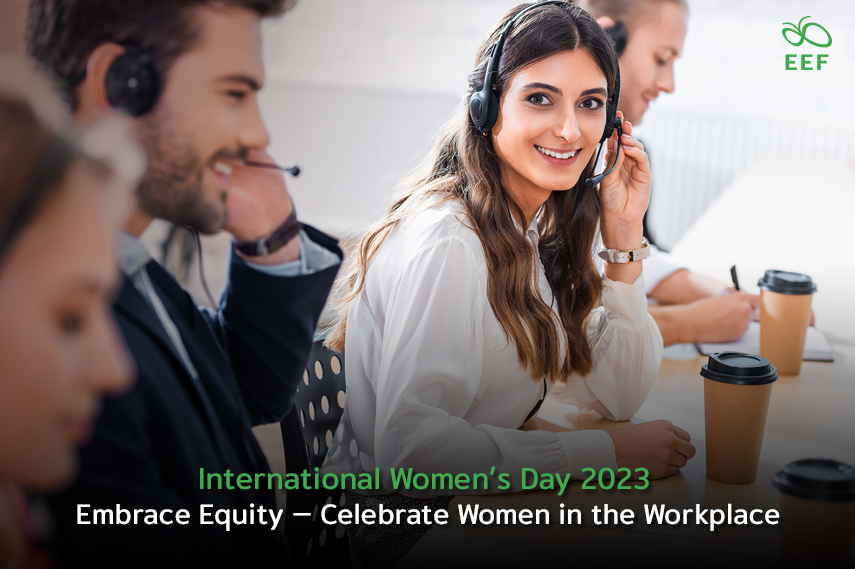
Digital gender divide has been demonstrated to contribute to widening economic and social inequalities. Women and girls are underrepresented online due to irregular access to digital devices, platforms, and services and thereby the digital literacy gap. This leaves them not only deprived of education, employment, and career development opportunities, unable to realize their full potential but also vulnerable and susceptible to being marginalized, especially in innovation- and technology-related professions and in decision-making roles, given the contemporary context of our digitally-driven world.
Research has exposed an alarming situation: 38% of women in 51 countries reported having fallen victim to online violence. Globally, women hold only 2 out of every 10 STEM jobs — comparatively some of the highest-paying jobs — and only 16.5% of inventors associated with a patent, not to mention the fact that they typically have shorter, less well-paid careers and frequently get passed over for promotions. And the most concerning about the gap is that it is steadily deepening, with estimates indicating that at the current rate of progress, it will take up to another 286 years for it to be closed. To tackle the issue, concerted efforts are necessary in order to raise awareness and encourage more women to participate in decision-making roles, which is still far away from reality.
And for the best example of how critical the issue of lack of female representation in decision-making roles is, one can look no further than the gender imbalance of attendees at the Davos World Economic Forum, a gathering of global leaders, which brought to light the stark inequity in male and female representations at the decision-making level, with female representatives accounting for just 27.5% of its participants. Improving female representation at the WEF’s influential annual event is something Dr. Anino Emuwa, founder of 100 Women at Davos, an impact-driven group of women leaders established to improve global decision-making and leadership, has been campaigning hard to address.

The world is currently emerging out of COVID — having not yet sorted out its effects — to so many so-called “permacrisis” challenges, from the fallout from Afghanistan and Ukraine to the global recession. The best talents out there are desperately needed on board to address this. Dr. Anino Emuwa, however, admitted being surprised to be there. She never imagined she would be invited to attend, but she did attend. She did so only to find that at this 2,500-person event, there were mainly men and not very many women. It was not until another woman came up to speak to her that she realized that women made up only a third. It is clear that talent is not exclusively male, and not having sufficient representation means that we are losing out on valuable problem-solving potential.
The imbalance was also pointed out at the Reykjavik Global Forum for Women Leaders by Shelley Zalis, CEO and founder of The Female Quotient, though through another lens. She raised a very thought-provoking question as to why the gender gap is not projected to be closed until another 286 years from now when by 2040, the global auto industry is expected to produce only electric cars by 2050, the world — fully eradicate Malaria by 2070, every person on earth — have internet access. It is high time to take concrete steps to bridge the gender gap.

The need for more women in the decision-making processes is on the forefront of the agenda at the World Economic Forum. However, without more women present, change will continue to happen at a glacial rate. A study by global consultancy McKinsey corroborates this, showing that women are taking the lead at their organizations when it comes to initiatives in innovation and technology — a critical sector for providing solutions to this permacrisis, yet they hold fewer than 10% of the top positions and attract only 5% of venture capital funding.
Anita Bhatia, Assistant Secretary-General and Deputy Executive Director of UN Women, echoed this sentiment, saying: “Women’s leadership is the first and most important agenda; Women have solutions to every conflict that is affected by the world, and when there is fewer women economic empowerment, that equals less human capital value.” This demonstrates the pressing need for addressing gender equality at the decision-making level, in order to create realistic solutions to our ongoing challenges.
Fortunately, there is a range of valuable solutions that when combined can bring progress toward gender equality in decision-making roles. Of particular note are addressing unconscious bias, which can inform our decisions on matters ranging from hiring to promotions, building communities and networks which can give female decision-makers access to invaluable resources, and creating workplaces that are more attuned to women, accommodating them and their aspirations.

- Addressing Unconscious Bias — Women are often not given their fair share of the spotlight in the leadership roles they take on, leading to an overall negative outlook on their capacity. To alter this perception and improve the status quo, it is imperative that women become normalized as leaders across a variety of fields. Doing so will create better opportunities for them and aid in the overall trend of attitude towards female leaders.
- Building Communities and Networks — People, both men, and women have a tendency to think of power as being held by males. To create a more even playing field, it is essential for women to come together and break this gender barrier. By standing together, they can create a more normalized perception of female power and influence. Doing so will help people become more aware and accepting of their female counterparts.
- Creating Workplaces That Are More Attuned to Women — Closed-door meetings and informal networks are commonly where most major decisions regarding high-level positions are made. For this reason, it is paramount for women to be included in the conversations, and for their voices to be heard. By enabling them to become involved in such networks, they might increase their chances of being considered for some of the most influential positions.
Everyone has a critical role to play in dealing with global challenges, yet women are still significantly underrepresented and underappreciated in certain sectors like technology and innovation, senior leadership roles, and international assignments. There is a well-established business case that companies that have a board that reflects a more representative and equitable balance of genders and socio-economic backgrounds in senior leadership perform better. Consequently, they should include diversity, equity, and inclusion as an aspect of how they achieve their goals. Championing the inclusion of women is more critical than ever.
Despite some signs of improvements, most notably more flexible approaches to education options and career development. There is still so much more we can do, both as individuals and professionals, to innovate to deepen women’s impact and address all of today’s challenges. And there was no other time more important for us to heed International Women’s Day 2023’s call to “embrace gender equity” than this. Only by acknowledging and amplifying the importance of women can we create the ripples for real change across all sectors and boost momentum to keep pace with these times of rapid change. Now is an opportune time to advocate for equity.
In the spirit of IWD2023’s theme “DigitALL: Innovation and Technology for Gender Equality,” we should “willingly accept, adopt, and espouse gender equity across education and employment, technology and innovation, well-being, and social leadership.” Efforts must be made to ensure equitable access to high-quality education and thereby diversify fields, especially the fields of innovation and technology, and forge inclusive work cultures where women’s careers thrive and their achievements are celebrated. This will make it possible for the perspectives and experiences of diverse talent to be centered to propel technology and innovation for a sustainable future.

